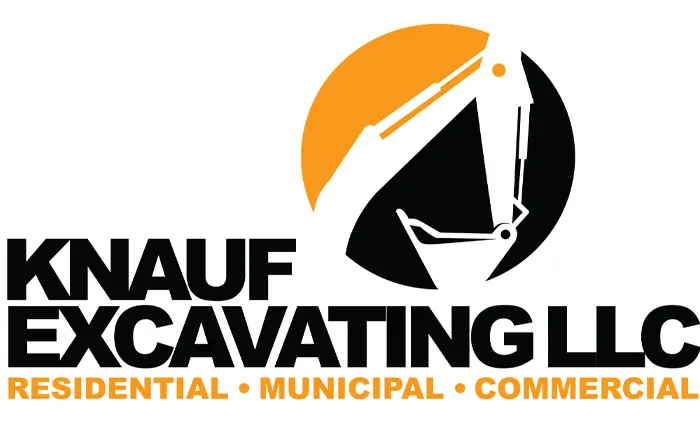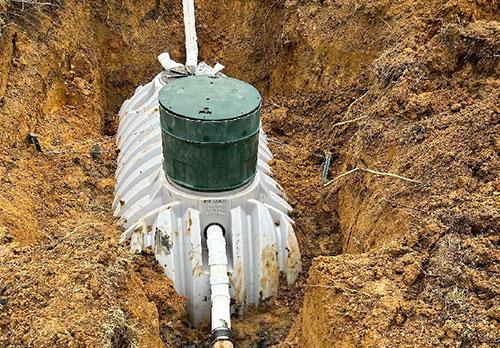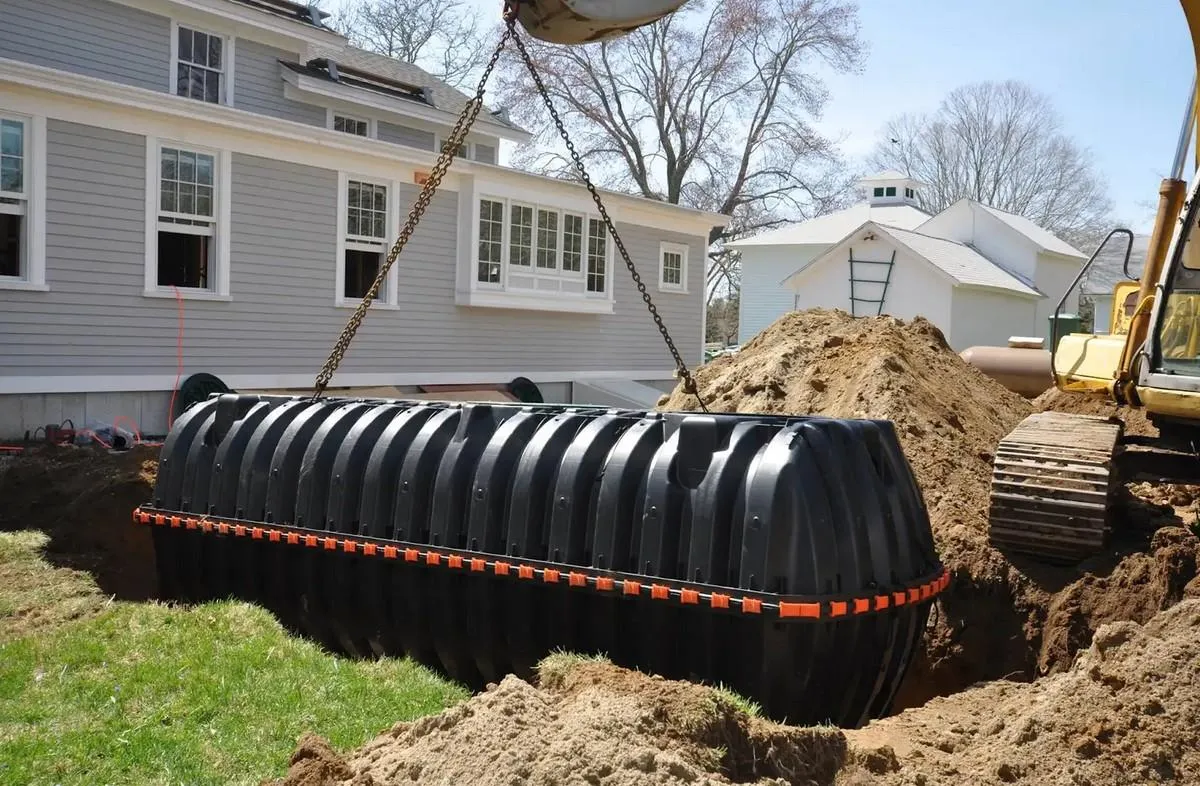
Serving Wisconsin Counties: Marathon, Oneida, Villas and Lincoln Counties
Septic Installation near Marathon County, Wisconsin
Knauf Excavating LLC is Committed to superior quality and results!

AVOID COSTLY MISTAKES:
Do NOT hire an excavating contractor without first reading our free guide:
The ULTIMATE Excavation & Septic "Success Guide."

Septic Installation near Marathon County, Wisconsin
If you live in a rural part of Wisconsin, chances are your home isn’t connected to a municipal sewer. That means your wastewater treatment relies on a private septic system—and when it comes time to install one, you want the job done right. Choosing the right Septic Installation near Marathon County, Wisconsin can make the difference between decades of worry-free performance and years of costly problems. Here, we explain what’s involved, the benefits of hiring local professionals, and the step-by-step process so you know exactly what to expect.
How Can We Help?


Understanding How a Septic System Works
A septic system is more than just a tank buried underground. It’s an entire treatment system designed to safely process household wastewater and return clean water to the soil.
A typical setup includes:
A septic tank that separates solids from liquids.
A drain field that filters wastewater through the soil.
Pipes and distribution systems that keep everything flowing smoothly.
When professionally installed, these parts work together quietly and efficiently. But for that to happen, your system must be properly sized, engineered for local soils, and installed by someone who understands Wisconsin’s unique conditions.
Why Septic Installation near Marathon County, Wisconsin Matters
Soil in Marathon County can vary dramatically—from sandy loam to heavy clay. The right contractor will take that into account during the design phase, performing a soil test (called a “perc test”) to determine how well your ground absorbs water.
A good installation ensures:
Reliable drainage that doesn’t back up into your home.
Protection for local groundwater and wells.
Compliance with county and state codes.
Longevity, since most quality systems last 20–40 years when maintained.
The goal is not just to install a system, but to create one that fits your property and lifestyle perfectly.
The Key Benefits of Professional Septic Installation
Hiring a professional for your Septic Installation near Marathon County, Wisconsin, brings several long-term benefits you might not realize at first.
1. Accurate System Design
Local pros understand Wisconsin’s environmental and code requirements. They’ll size your tank based on how many bedrooms you have, what kind of soil is on your property, and your water-use habits.
2. Reduced Risk of Failures
Poor installations can lead to clogs, leaks, or groundwater contamination. A skilled team ensures slopes, piping, and elevation levels meet design specs to prevent future issues.
3. Cost Savings Over Time
While hiring a professional might seem expensive up front, it actually saves you money by preventing costly repairs and failed inspections.
4. Property Value Protection
A well-documented, properly installed septic system boosts resale value. Future buyers know they’re getting a safe, code-compliant setup.
5. Local Knowledge
Installers familiar with Marathon County’s permitting process can streamline approvals, avoiding project delays.
Understanding Costs and What Affects Them
The cost of Septic Installation near Marathon County can vary widely based on several factors:
Soil conditions: Rocky or wet soil requires more excavation work.
System type: Gravity systems cost less than pressure or mound systems.
Lot accessibility: Tight spaces or long pipe runs raise labor costs.
Permits and inspections: Fees vary by county and project complexity.
While prices vary, the goal should always be long-term reliability, not the lowest upfront cost. The cheapest installation can quickly become the most expensive if it fails early.
See Our Excavation & Septic Services

✔️ Commercial Excavation
✔️ Residential Excavation
✔️ Swimming Pool Excavation
✔️ Basement Digging
✔️ Basement Backfill
✔️ Shoreline Restoration
✔️ Driveway Construction
✔️ Municipal Excavating
✔️ Snow Plowing Service
✔️ Demolition
✔️ Large Pond Construction
✔️ Small Pond Construction
✔️ Dozer Work
✔️ Septic Inspections
✔️ Septic System Pumping
✔️ Septic Installs Traditional Systems
✔️ Septic Tanks - Aerobic Systems
Quality Services Launched FAST!

✔️ Septic Tanks - Plastic/Poly
✔️ Septic Tanks - Concrete
✔️ Drain Field Replacement
✔️ Forestry Mulching
✔️ Grading, Lot Clearing
✔️ Retaining Walls
✔️ Sewer Repairs
✔️ Drainage Systems
✔️ Concrete Flatwork
✔️Driveways, Sidewalk, Foundations
✔️ Foundation Repairs
✔️ Full Site Preparation
✔️ Trenching
✔️ Utilities Trenching
✔️ Grade Shed Pad
✔️ Site Construction
What Are You Waiting For?
The Process for Hiring a Septic Installation near Marathon County
When you’re ready to install a septic system, here’s what typically happens:
Step 1: Site Evaluation
Your installer will inspect your property and perform soil testing to see how quickly the ground absorbs water. This step determines the type of system you’ll need.
Step 2: System Design and Permitting
Based on the soil data, your designer creates a layout showing where the tank and drain field will go. This plan is submitted to the county for approval before any digging begins.
Step 3: Scheduling and Preparation
Once permits are approved, the team schedules your installation. They’ll prepare the site, bring in necessary materials, and set up erosion-control measures to protect your land.
Step 4: Excavation and Installation
Heavy equipment is used to excavate the trenches and place the tank. The drain field is built, pipes are connected, and slopes are precisely measured to ensure proper flow.
Step 5: Inspection
Before backfilling, a county inspector checks the system to confirm it matches the approved design. Once passed, the system is covered and graded for proper drainage.
Step 6: Final Setup and Education
After the final grade is complete, your installer will review maintenance procedures—like filter cleaning and pumping schedules—so you can care for your new system properly.
Seasonal Considerations for Wisconsin Properties
Wisconsin’s harsh winters create special challenges for septic work. Local professionals know how to handle frozen ground and frost lines to prevent damage.
Here’s how timing affects your project:
Spring and summer offer ideal conditions for excavation and soil testing.
Fall installations require insulation and protective measures before frost.
Winter projects are possible but may involve added costs due to frozen ground and limited equipment mobility.
Maintaining Your New Septic System
A system is only as good as its maintenance routine. Once your installation is complete, protect your investment with a few simple habits:
Pump your tank every 2–3 years.
Keep heavy vehicles and machinery off your drain field.
Divert rain and sump pump water away from the field area.
Avoid flushing wipes, grease, or harsh chemicals.
Keep accurate records of all inspections and pumping dates.
With consistent upkeep, a quality system can last several decades while keeping your home and environment safe.
Moving Forward with Your Septic Installation near Marathon County
Installing a septic system doesn’t have to be overwhelming. When you work with experienced local experts who understand Wisconsin’s soils, codes, and climate, you’ll get a system that lasts for decades and protects your property investment.
If you’re building a new home, replacing an old system, or developing rural land, start with a trusted local professional who specializes in Septic Installation near Marathon County, Wisconsin—someone who will guide you through each step clearly and keep your project running smoothly from start to finish.
Hours: Mon-Fri 7AM-5PM
Extended hours by appointment only.
Address: 1250 W. Campus Dr. Wausau, Wisconsin 54401
All rights reserved | Client Support Area